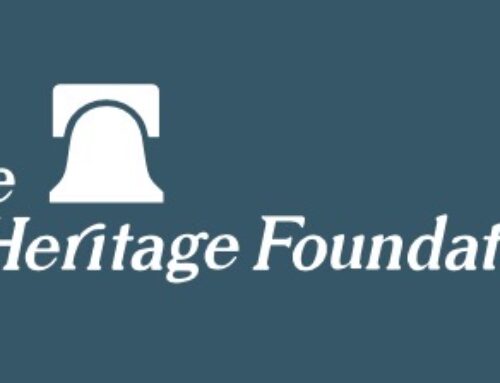By Hans von Spakovsky and Grant Strobl
Virginia governor Terry McAuliffe, the former head of the Democratic National Committee, is at it again, vetoing six bills aimed at preventing voter fraud and illegal voting.
What does he have against election integrity? Why does he want to make it easier to commit fraud and harder for election officials to detect or deter it?
Voter fraud is a problem, in the Commonwealth of Virginia and nationwide. The database that the Heritage Foundation started less than two years ago is already up to 474 cases and 755 criminal convictions — and this is just the tip of the iceberg, since many cases go unreported and unprosecuted.
According to a 2016 report by the Public Interest Legal Foundation, a small sample of only eight counties in Virginia showed 1,046 non-citizens who were registered to vote, many of whom had voted before they were removed from the voter rolls. Heritage’s database shows voter-fraud convictions in Virginia for everything from absentee-ballot fraud to false registrations to vote buying. Yet this disturbing reality does not appear to faze Terry McAuliffe.
On March 27 he vetoed three of the bills. The first, Senate Bill 1253, would require poll books to include DMV photographs. Virginia already mandates a photo ID to vote; this bill would actually speed the voting process on Election Day by waiving the voter-ID requirement if a DMV picture already exists in the voter file, while acting as a check on individuals who might be trying to use a fake ID. Yet Governor McAuliffe professes to believe that this attempt to streamline the process would somehow lead to “voter confusion.” Perhaps it is the governor who is confused.
The second bill he vetoed, Senate Bill 1455, would have implemented a state version of a federal law (42 USCS § 1973i) making it unlawful to pay individuals to register to vote. Instead of giving local prosecutors an additional tool to use, McAuliffe dismissed the bill as redundant and claimed that “there is no evidence this activity is occurring in the Commonwealth.” Perhaps McAuliffe should review the case of Appalachia, Va., Mayor Ben Cooper. He and 14 co-conspirators were convicted in 2007 of absentee-ballot fraud and buying votes with cigarettes, beer, and pork rinds.
Being registered to vote is a necessary precondition to getting paid to vote. In any event, state prosecutors can’t enforce federal laws and should not have to depend on federal prosecutors to go after wrongdoing in their state. Why would McAuliffe not want to give Commonwealth prosecutors the same ability to go after this kind of criminal behavior?
The third bill, Senate Bill 1581, would have required general registrars to match voter-registration information with Social Security Administration data and other state-board-approved databases to verify the name, date of birth, and Social Security number of the applicant. The bill would also require a yearly audit of voter lists using the same databases, to verify the accuracy of the information being submitted by registrants. McAuliffe vetoed this bill, too. That was just one day in Governor McAuliffe’s efforts to suppress all effort to improve the integrity of the election process.
But there is more.






